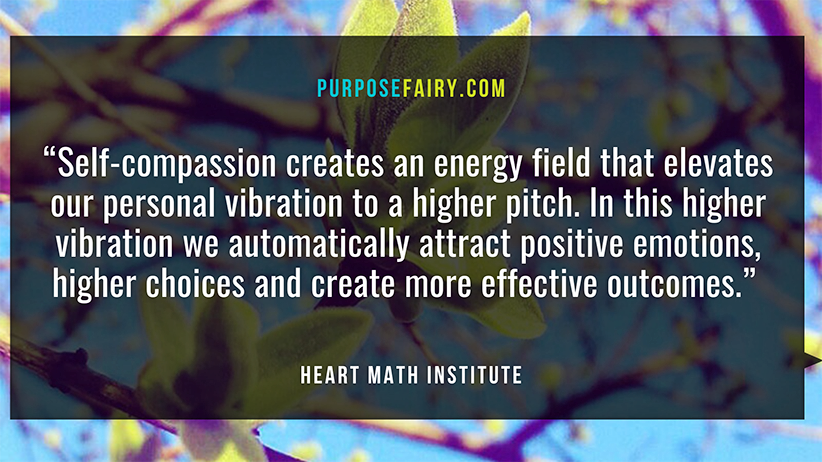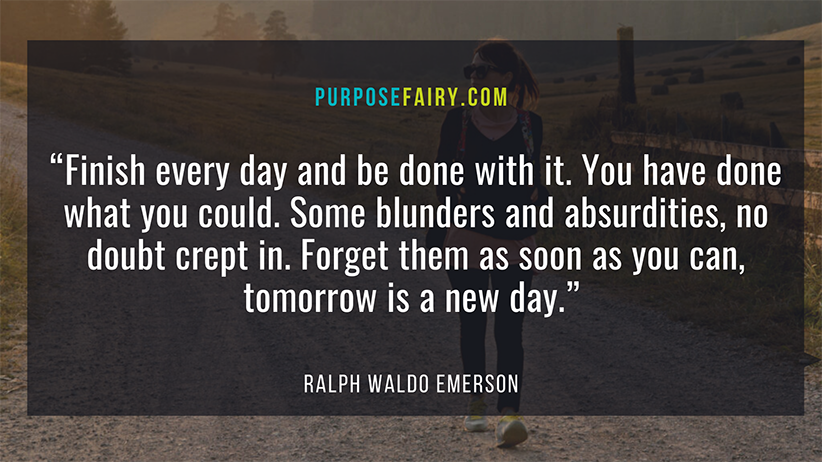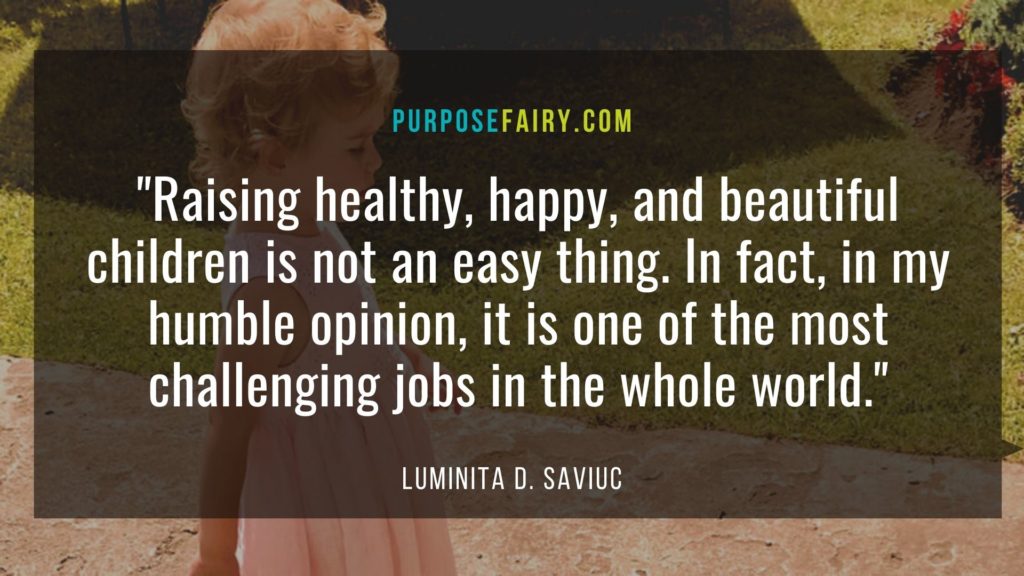
Daniel Goleman is the author of some of the most impactful books on emotional and social intelligence but the most known is definitely the international bestseller Emotional Intelligence: Why It Can Matter More Than IQ and an all time favorite of mine I might add.
Daniel Goleman
Over the years I have learned so much from this wonderful man and I am sure these lessons I will share with you today, are going to bring you exactly what you need in order to live a happier, more fulfilling and harmonious life, in every aspect of it.
29 Life-Changing Lessons to Learn from the Wise Daniel Goleman
1. When we focus on others, our world expands.
“Self-absorption in all its forms kills empathy, let alone compassion. When we focus on ourselves, our world contracts as our problems and preoccupations loom large. But when we focus on others, our world expands. Our own problems drift to the periphery of the mind and so seem smaller, and we increase our capacity for connection – or compassionate action.”~ Daniel Goleman
2. True compassion means not only feeling another’s pain but also being moved to help relieve it.
“True compassion means not only feeling another’s pain but also being moved to help relieve it.”~ Daniel Goleman
3. If you can’t have empathy and have effective relationships, then no matter how smart you are, you are not going to get very far.
“If your emotional abilities aren’t in hand, if you don’t have self-awareness, if you are not able to manage your distressing emotions, if you can’t have empathy and have effective relationships, then no matter how smart you are, you are not going to get very far.”~ Daniel Goleman
4. The first step in compassion is to notice the other’s need. It all begins with the simple act of attention.

“Simple inattention kills empathy, let alone compassion. So the first step in compassion is to notice the other’s need. It all begins with the simple act of attention.”~ Daniel Goleman
5. People tend to become more emotionally intelligent as they age and mature.
“People tend to become more emotionally intelligent as they age and mature.”~ Daniel Goleman
6. What really matters for success, character, happiness and life long achievements is a definite set of emotional skills – your EQ.
“What really matters for success, character, happiness and life long achievements is a definite set of emotional skills – your EQ – not just purely cognitive abilities that are measured by conventional IQ tests.”. ~ Daniel Goleman
7. The more socially intelligent you are, the happier and more robust and more enjoyable your relationships will be.
“The more socially intelligent you are, the happier and more robust and more enjoyable your relationships will be.” ~ Daniel Goleman
8. Emotional intelligence does not mean merely “being nice”.
“Emotional intelligence does not mean merely “being nice”. At strategic moment it may demand not “being nice”, but rather, for example, bluntly confronting someone with an uncomfortable but consequential truth they’ve been avoiding.”~ Daniel Goleman
9. Fear, in evolution, has a special prominence: perhaps more than any other emotion it is crucial for survival.”
“Fear, in evolution, has a special prominence: perhaps more than any other emotion it is crucial for survival.”~ Daniel Goleman
10. The antidote for mind wandering is meta-awareness, attention to attention itself.
“The antidote for mind wandering is meta-awareness, attention to attention itself, as in the ability to notice that you are not noticing what you should, and correcting your focus. Mindfulness makes this crucial attention muscle stronger.”~ Daniel Goleman
11. The most powerful distractor for us is the chatter of our own minds, not the chatter of the people around us.
“It’s not the chatter of people around us that is the most powerful distractor, but rather the chatter of our own minds. Utter concentration demands these inner voices be stilled. Start to subtract sevens successively from 100 and, if you keep your focus on the task, your chatter zone goes quiet.”~ Daniel Goleman
12. Mindfulness helps especially for those of us for whom every setback, hurt or dissapointment creates endless cascades of rumination.

“Mindfulness helps especially for those of us for whom every setback, hurt or dissapointment creates endless cascades of rumination.”~ Daniel Goleman
13. Life is a comedy for those who think and a tragedy for those who feel.
“Life is a comedy for those who think and a tragedy for those who feel.”~ Daniel Goleman
14. Sadness enforces a reflective retreat from life’s business, allowing ourselves to mourn, mull over the meaning of loss and eventually allowing our lives to continue.
“Sadness enforces a kind of reflective retreat from life’s busy pursuits, and leaves us in a suspended state to mourn the loss, mull over its meaning, and, finally, make the psychological adjustments and new plans that will allow our lives to continue.”~ Daniel Goleman
15. People with well-developed emotional skills are also more likely to be content and effective in their lives.
“People with well-developed emotional skills are also more likely to be content and effective in their lives, mastering the habits of mind that foster their own productivity; people who cannot marshal some control over their emotional life fight inner battles that sabotage their ability for focused work and clear thought.”~ Daniel Goleman
16. Laughter may be the shortest distance between two brains, an unstoppable infectious spread that builds an instant social bond.”
“Indeed, laughter may be the shortest distance between two brains, an unstoppable infectious spread that builds an instant social bond.”~ Daniel Goleman
17. The most powerful form of nondefensive listening, of course, is empathy: actually hearing the feelings behind what is being said.
“The most powerful form of nondefensive listening, of course, is empathy: actually hearing the feelings behind what is being said.”~ Daniel Goleman
18. It’s not the highs along the way that matter. It’s who you become.
“It’s not the highs along the way that matter. It’s who you become.”~ Daniel Goleman
19. The more significant the relationship is in your life, the more it matters for your health.
“It’s the most important relationships in your life, the people you see day in and day out, that seem to be crucial for your health. And the more significant the relationship is in your life, the more it matters for your health.”~ Daniel Goleman
20. One friend can make the difference – even when all others turn their backs.
“One friend can make the difference – even when all others turn their backs (and even when that friendship is not all that solid).”~ Daniel Goleman
21. Emotional resilience comes down to how quickly we recover from upsets.
“Emotional resilience comes down to how quickly we recover from upsets. People who are highly resilient—who bounce back right away—can have as much as thirty times more activation in the left prefrontal area than those who are less resilient.”~ Daniel Goleman
22. There is perhaps no psychological skill more fundamental than resisting impulse.
“There is perhaps no psychological skill more fundamental than resisting impulse. It is the root of all emotional self-control, since all emotions, by their very nature, lead to one or another impulse to act.”
23. Whenever you notice your mind wandering, bring your mind back to its point of focus.
“Whenever you notice your mind wandering,” a fundamental instruction in meditation advises, “bring your mind back to its point of focus.” The operative phrase here is whenever you notice. As our mind drifts off, we almost never notice the moment it launches into some other orbit on its own.”~ Daniel Goleman

24. Our society suffers from an attention deficit.
“Our society suffers from an attention deficit. Today’s children grow up with a digital device at hand continuously, and those devices offer constant distractions (and a larger stream of information than for any generation in the past), so we consider boosting attention skills to be nothing short of an urgent public health need.”~ Daniel Goleman
25. The key to resilience is trying really hard, then stopping, recovering, and then trying again.
“The key to resilience is trying really hard, then stopping, recovering, and then trying again.”~ Daniel Goleman
26. Good work requires enthusiasm, ethics, and excellence.
“Good work requires enthusiasm, ethics, and excellence.”~ Daniel Goleman
27. If there is a remedy, I feel it must lie in how we prepare our young for life.
“If there is a remedy, I feel it must lie in how we prepare our young for life.”~ Daniel Goleman
28. Meditation is a catch-all word for myriad varieties of contemplative practice, just as sports refers to a wide range of athletic activities.
“Meditation is a catch-all word for myriad varieties of contemplative practice, just as sports refers to a wide range of athletic activities. For both sports and meditation, the end results vary depending on what you actually do.”~ Daniel Goleman
29. Except for the financially desperate, people do not work for money alone.
“Except for the financially desperate, people do not work for money alone. What also fuels their passion for work is a larger sense of purpose or passion. Given the opportunity, people gravitate to what gives them meaning, to what engages to the fullest their commitment, talent, energy, and skill.”~ Daniel Goleman
Bonus:
“A child’s readiness for school depends on the most basic of all knowledge, how to learn. The report lists the seven key ingredients of this crucial capacity—all related to emotional intelligence:6
1. Confidence. A sense of control and mastery of one’s body, behavior, and world; the child’s sense that he is more likely than not to succeed at what he undertakes, and that adults will be helpful.
2. Curiosity. The sense that finding out about things is positive and leads to pleasure.
3. Intentionality. The wish and capacity to have an impact, and to act upon that with persistence. This is related to a sense of competence, of being effective.
4. Self-control. The ability to modulate and control one’s own actions in age-appropriate ways; a sense of inner control.
5. Relatedness. The ability to engage with others based on the sense of being understood by and understanding others.
6. Capacity to communicate. The wish and ability to verbally exchange ideas, feelings, and concepts with others. This is related to a sense of trust in others and of pleasure in engaging with others, including adults.
7. Cooperativeness. The ability to balance one’s own needs with those of others in group activity. Whether or not a child arrives at school on the first day of kindergarten with these capabilities depends greatly on how much her parents—and preschool teachers—have given her the kind of care that amounts to a “Heart Start,” the emotional equivalent of the Head Start programs.”
“Our sense of well-being depends to some extent on others regarding us as a You; our yearning for connection is a primal human need, minimally for a cushion for survival. Today the neural echo of that need heightens our sensitivity to the difference between It and You—and makes us feel social rejection as deeply as physical pain.”
“It is in moments such as these—when impulsive feeling overrides the rational—that the newly discovered role for the amygdala is pivotal. Incoming signals from the senses let the amygdala scan every experience for trouble.
This puts the amygdala in a powerful post in mental life, something like a psychological sentinel, challenging every situation, every perception, with but one kind of question in mind, the most primitive: “Is this something I hate? That hurts me? Something I fear?”
If so—if the moment at hand somehow draws a “Yes”—the amygdala reacts instantaneously, like a neural tripwire, telegraphing a message of crisis to all parts of the brain.”
“And one of the paradoxes is that leaders, the higher they go, the less vertical feedback they get on how they’re actually doing, because people are afraid to tell them. So leaders can go off in a direction thinking they’re doing fine, not realizing they’re not.”
“There are two major streams of self-awareness: “me,” which builds narratives about our past and future; and “I,” which brings us into the immediate present. The “me,” as we’ve seen, links together what we experience across time. The “I,” in stark contrast, exists only in the raw experience of our immediate moment.”
“The ability of the powerful to dismiss inconvenient people (and inconvenient truths) by paying no attention has become the focus of social psychologists, who are finding relationships between power and the people we pay most and least attention to.”
“Whoever has the mind to fight has broken his connection with the universe. If you try to dominate people you are already defeated. We study how to resolve conflict, not how to start it.”
“Emotional ‘literacy’ implies an expanded responsibility for schools in helping to socialize children. This daunting task requires two major changes: that teachers go beyond their traditional mission and that people in the community become more involved with schools as both active participants in children’s learning and as individual mentors.”
“The act of compassion begins with full attention, just as rapport does. You have to really see the person. If you see the person, then naturally, empathy arises. If you tune into the other person, you feel with them. If empathy arises, and if that person is in dire need, then empathic concern can come. You want to help them, and then that begins a compassionate act. So I’d say that compassion begins with attention.”
“From the vantage point of the brain, doing well in school and at work involves one and the same state, the brain’s sweet spot for performance. The biology of anxiety casts us out of that zone for excellence. “Banish fear” was a slogan of the late quality-control guru W. Edwards Deming.
He saw that fear froze a workplace: workers were reluctant to speak up, to share new ideas, or to coordinate well, let alone to improve the quality of their output. The same slogan applies to the classroom—fear frazzles the mind, disrupting learning.”
“Our memories are in part reconstructions. Whenever we retrieve a memory, the brain rewrites it a bit, updating the past according to our present concerns and understanding. At the cellular level, LeDoux explains, retrieving a memory means it will be “reconsolidated,” slightly altered chemically by a new protein synthesis that will help store it anew after being updated.
Thus each time we bring a memory to mind, we adjust its very chemistry: the next time we retrieve it, that memory will come up as we last modified it. The specifics of the new consolidation depend on what we learn as we recall it. If we merely have a flare-up of the same fear, we deepen our fearfulness. But the high road can bring reason to the low. If at the time of the fear we tell ourselves something that eases its grip, then the same memory becomes reencoded with less power over us.
Gradually, we can bring the once-feared memory to mind without feeling the rush of distress all over again. In such a case, says LeDoux, the cells in our amygdala reprogram so that we lose the original fear conditioning.41 One goal of therapy, then, can be seen as gradually altering the neurons for learned fear.”
Comments
E. F.
read more
